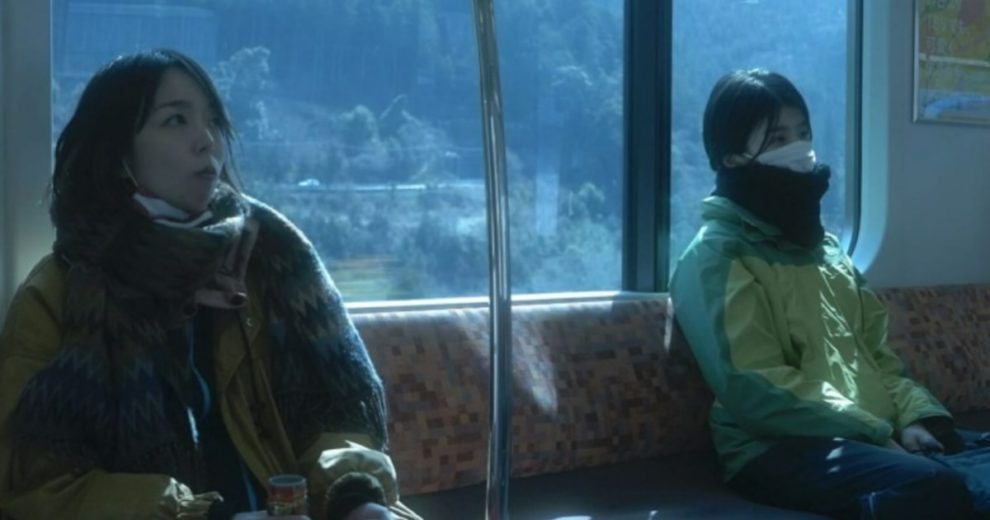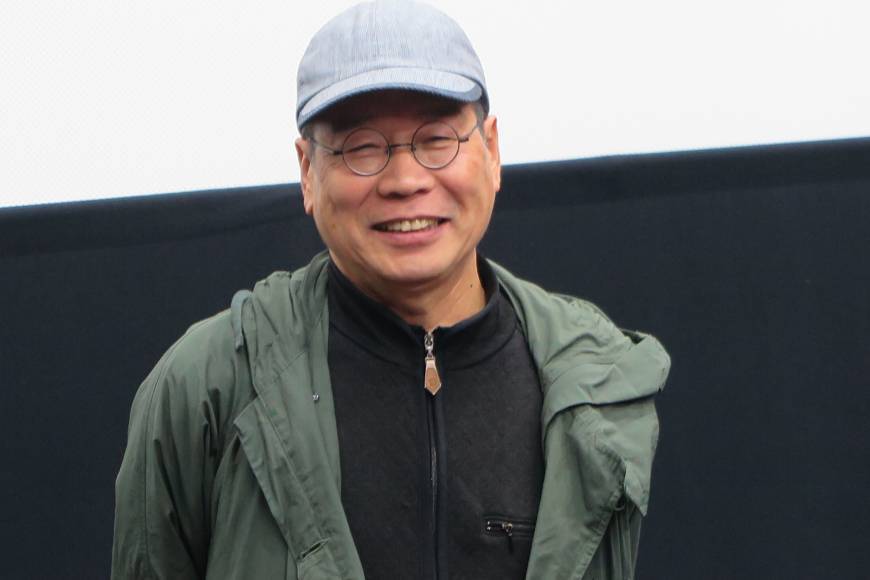Winner of the Audience Award at the 2021 PIa Film Festival, “In the Distance” follows the path of the Japanese comedy/drama quite closely, making, though, some very interesting comments during its four acts.
“In the Distance” is screening at InlanDimensions

Aki is an aspiring photographer who lives in the same apartment as San, a part-time worker. They were sharing a house with a mutual friend, but are now stuck living together, while
their friend is away on a working holiday abroad, with the tension, mostly deriving from the former becoming quite enervated as the latter seems to frequently take her mail in her room without letting her know. As the movie begins, Tadokoro, a man from the real estate agency in charge of their building, knocks their door to communicate the complaints of some of the neighbors due to the loud practicing of accordion by San. In the end though, the two connect, as Tadokoro also plays the ocarina, and the two start playing, with San changing the accordion for the triangle. Even more surprisingly, Aki also joins them eventually, as she plays percussion. Soon, however, things take a much different turn.
In the second segment, San visits a friend who seems to have barricaded herself in her apartment, with the reason eventually being revealed as her boyfriend, whom she does not want to see in any way. In the end, he manages to come in, and with the help of San, a rather unusual type of reconciliation, involving discussions about bugs and food, begins. In the third act, a mysterious girl appears to Aki, with the two beginning to connect over their taste in literature, although it is soon revealed that she has something to do with San. Food once more plays an important part. In the fourth part, Aki loses a green stone her grandfather has gifted her, and she is quick to accuse San for the loss. Her actions bring the girls to an inevitable confrontation, but in the end, San decides to accompany her roommate to a trip in the woods to find the stone. The ending, however, is anything but what they expected.
Saki Cato directs a quirky, tenderly funny comedy which revolves around a series of youths, each of whom seems to have its own set of problems, and intense troubles dealing with them. The focus is evidently on Aki and San, whose rather different personas is the main source of the tension in the movie, although it only becomes palpable during the last act. As such, Aki is meticulous and stoic, and does not have many friends, while San is lazy, carefree, and the type of person that will become friends with the real estate agent that comes to her house to make a complaint about her accordion playing. At the same time, though, and although San's tendencies of bringing people in the house and taking Aki's correspondence creates a number of problems, she is also the one willing and able to care and even solve other people's issues, which essentially deems her a more mature person than her seemingly composed flatmate.
Furthermore, as the fact that all the people appearing in the film seem to share character similarities with each other, Cato's main comment also comes to the fore, about people being able to reconcile if they simply sit down and talk with each other, even if occasionally, some outside help or a direct confrontation is needed.
Cato herself as Ako and Haruka Toyoshima as San present all the aforementioned aspects quite realistically, with their antithetical chemistry being excellent throughout the movie. Yosuke Kawamoto's cinematography captures the small apartments the story takes place in with realism, without any particular exaltations, with the exception of the finale, which seems, though, somewhat disconnected from the rest of the narrative, as some sci-fi elements come to the fore. The editing results in the usual, mid-tempo of this type of Japanese movie, which fits the overall aesthetics of the title nicely.
“In the Distance” is easy to watch, presents interesting comments, and, in general, is a rather hopeful debut for Cato.
















